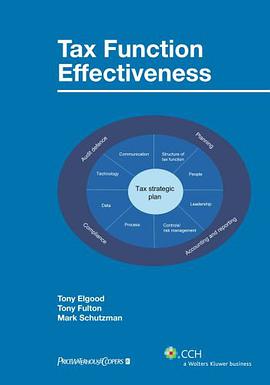

具体描述
This is an extended discussion of this timeless argument of faith and reason. In 1965 D Z Phillips published The Concept of Prayer, one of his first books, and the first time that the influence of Wittgenstein's thought in the philosophy of religion was truly exposed. Two years later, in 1967, Kai Nielsen published his famous article "Wittgensteinian Fideism" in the journal Philosophy. Their respective philosophical work has developed over the years, with Phillips becoming known as the leading proponent of Wittgensteinian philosophy of religion, (Wittgenstein's philosophy was that language had only limited meaning unless one understood the rules of the game in order to decipher the structure underlying language. D Z Phillips relates this to theology and religious faith.) and with Nielsen returning to renew his investigation of what he believes is the fideistic implications of this mode of philosophizing. (Nielsen's point being that by applying such reason to religious faith, one does away with the relevance of the faith. If God can be proven, why bother with a faith?) For Phillips the term "Wittgensteinian Fideism" (the belief that faith and reason are separate and faith can only be achieved by the denial of certain rational truths) does more harm than good, since for him it misrepresents and deflects us from the main logical issues concerning language and reality in Wittgenstein's work. For Nielsen, Wittgensteinian Fideism constitutes the most powerful contemporary challenge to secular naturalism. Wherever readers stand in the dispute, there is much to learn from the exchanges within it.
作者简介
目录信息
读后感
评分
评分
评分
评分
用户评价
读完前三分之一,我得承认,这本书的写作风格极其独特,它仿佛在用一种近乎诗意的精确性解构着我们的思维习惯。作者避免了传统哲学著作中那种板着面孔的论证铺陈,转而采用了一种更具流动性和反思性的叙述方式。它更像是一场与一位极其睿智但又略显古怪的导师进行的漫长对话,导师不断地抛出看似简单却直击要害的问题,迫使你审视那些你习以为常的“常识”。我特别欣赏作者在处理那些模糊不清的灰色地带时的审慎态度。他没有急于给出斩钉截铁的结论,而是像在描绘一幅印象派的画作,让你自己去填充那些留白。这种对确定性的拒绝本身,或许就是对维特根斯坦精神的最好致敬。书中关于“看见”和“理解”之间关系的探讨,尤其发人深省。我们真的“看见”了世界运作的方式,还是我们仅仅沉浸在一种被社会和语言结构所预设的“看见”的模式中?这本书的力度不在于它提供了多少答案,而在于它成功地揭示了我们提问方式本身的局限性。这迫使我停下来,反思我自己在日常决策和信仰构建中,究竟有多少成分是基于清晰的推理,又有多少是基于一种不容置疑的、近乎盲目的“信赖”。
评分这本书的行文结构,与其说是线性的论证,不如说是一种螺旋式的深化。作者似乎总是在一个点上提出一个看似简单的观点,然后用好几页的篇幅从各个角度反复打磨、旋转、观察,直到这个观点内部的张力完全展现出来。这种反复咀嚼的写作方式,虽然可能让追求快速结论的读者感到不耐烦,但对于那些真正想沉浸在哲学思辨中的人来说,简直是莫大的享受。它迫使你慢下来,去品味每一个词语的选择和每一个句子的节奏。最让我感到震撼的是作者处理“怀疑的终结”这一主题的方式。在维特根斯坦的语境中,怀疑的终结往往不是通过“解决”问题达成的,而是通过一种“看见”:看见这些问题原来根本就不是问题。这本书则更进一步,它似乎在暗示,当理性达到其自身的极限时,我们所依赖的“忠诚”并非是一种软弱的妥协,而是一种基于对世界本质的深刻洞察——即世界在根本上是如此,而我们只能接受并在此基础上行动——所产生的一种坚定不移的立场。这是一种令人信服的,充满力量的哲学姿态。
评分这本书给我带来的最持久的印象,是它在探讨“界限”时的那种近乎残酷的诚实。它不断地将我们推向语言和逻辑的边缘,去看当我们试图谈论那些“不可言说之物”时,会发生什么。作者运用了一系列精妙的类比和思想实验,这些实验不像教科书里那样规整,反而更像是生活中的闪光片段,但它们被提炼到了极致,以至于具有了强大的穿透力。我尤其喜欢其中关于“仪式”和“习惯”的论述,它将我们日常生活中那些看似不证自明的行为模式,提升到了哲学分析的层面。这些行为模式,这些我们仅仅因为“我们就是这样做”而坚持下去的东西,在某种意义上,构成了我们赖以生存的意义网络,而这个网络本身是无法被外部逻辑所证实的。这本书的伟大之处在于,它没有试图去“证明”这些基础信念的真理性,而是转而探讨了“接受”它们对于构建一个稳定的人类存在意味着什么。这是一种将哲学问题从纯粹的认识论领域,巧妙地转移到存在论和伦理学维度的操作,极大地拓宽了讨论的视野,令人深思。
评分从纯粹的学术角度来看,这本书无疑是一项雄心勃勃的工程。它横跨了分析哲学、现象学和宗教哲学这几个看似水火不容的领域,并试图在它们的交汇点上建立起一种新的解释框架。作者对维特根斯坦文本的引用是如此的细致入微,以至于你感觉他不仅仅是在解读文本,更像是在重构维特根斯坦本人在写作过程中的心境和挣扎。但是,我也必须指出,这种深度带来的一个副作用是,阅读过程中的门槛相当高。对于那些不熟悉《逻辑哲学论》或《哲学研究》中特定论点的读者来说,书中时不时冒出的术语和复杂的句法结构,可能会成为一个不小的障碍。不过,如果能坚持下来,那种豁然开朗的感觉是其他许多哲学著作难以比拟的。这本书的精彩之处在于,它挑战了我们对“信仰”的刻板印象。它暗示着,真正的“忠诚”可能并非是缺乏理性的盲目服从,而是在充分认识到所有理性工具都已穷尽之后,仍然选择坚守于某种特定的、构成我们世界观的“基础性视角”的主动姿态。这种主动性,赋予了“忠诚”一种全新的、更具能动性的哲学重量。
评分这本书的封面设计真是引人注目,那种略带复古又充满现代感的排版,让人在书店的书架上很难不被它吸引。我是在无意中翻到的,但那标题——《维特根斯坦式的忠诚主义?》——立刻抓住了我的注意力,因为它触及了哲学思辨的核心困境:在面对最终的意义时,我们是选择理性分析,还是诉诸某种不可言喻的“信念”?这本书的作者显然对维特根斯坦晚期哲学的微妙之处有着深刻的理解,特别是那种关于语言游戏边界的探讨,以及“世界如何是如此”的根本性问题。我预感这本书不会是一本轻松的读物,它更像是一次智力上的攀登,要求读者不仅要有扎实的哲学背景知识,更需要一种愿意质疑自身认知基础的勇气。这种挑战性本身就构成了巨大的吸引力。我好奇作者是如何将“忠诚主义”(Fideism)——这个通常与宗教信仰的非理性辩护联系在一起的词汇——与维特根斯坦那种着重于描述性、非形而上学的语言分析哲学嫁接起来的。这种结合本身就暗示了一种对理性限界的深刻反思,也许它试图探讨的是,在我们的“生活形式”中,那些我们从未质疑过、也无法通过逻辑证明的基石性信念,在本质上是否具有一种近似于信仰的结构。我期待看到作者如何在严谨的逻辑推演和对人类经验底层的直觉把握之间架起一座桥梁,而不是简单地将两者对立起来。
评分 评分 评分 评分 评分相关图书
本站所有内容均为互联网搜索引擎提供的公开搜索信息,本站不存储任何数据与内容,任何内容与数据均与本站无关,如有需要请联系相关搜索引擎包括但不限于百度,google,bing,sogou 等
© 2026 book.wenda123.org All Rights Reserved. 图书目录大全 版权所有




















